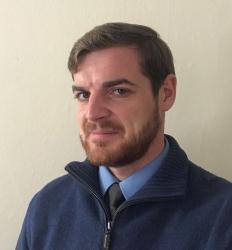Last week the Think Tank and Civil Societies Program at the University of Pennsylvania released their 2018 think tank rankings. These results rank think tanks both overall and by category, with various classifications according to geography, policy focus, and so on. The survey results cover more than 8,000 think tanks around the world; the Acton Institute was ranked #158 in the world and #27 in the US overall. Acton was also ranked in several individual categories. Acton University, for instance, was the highest-ranked conference organized by a free-market think tank. Alejandro Chafuen, Acton’s Managing Director, International, published an article in Forbes outlining the ranking results as well as his reactions and interpretations.
Since I began writing these articles about how peers rank market-oriented think tanks, Heritage Foundation has been the consistent leader. The 2018 Global Go To Think Tank Index Report was released last week by James G. McGann, leader of the Think Tanks and Civil Societies Program of the Lauder Institute at the University of Pennsylvania. The release is usually accompanied by a high-level meeting of the heads of the most relevant think tanks. I had the privilege of attending, and the results are as follows.
Heritage was named as a leading think tank in 24 categories. The Brookings Institution was first in the overall ranking, which includes think tanks of different orientations. Without counting its foreign subsidiaries, Brookings received 34 nominations. Heritage was first among all think tanks, including Brookings, as the think tank with most impact on public policy. This is the second year in a row that it earned this coveted position.
Repeating its success from 2018, Canada’s Fraser Institute placed second, receiving honors in 23 categories. Their budget is a fraction (15 percent) of that of Heritage, and also two-thirds smaller than that of Cato Institute, which received 21 nominations. Fraser ranked first in Canada and topped all other free-market institutes in the category of domestic health-policy studies, as well as in domestic social policy.
There are more than 8,000 think tanks in the TTCSP database. This year’s results measured surveys completed either in full or partially by 3,750 “voters” (not all rank think tanks in all categories). More than 50 categories rank think tanks by region, type (independent or affiliated with governments, corporations, political parties or universities) and focus (health, environment, etc.).
No ranking is perfect, and the manner in which the Global Go To ranking is compiled, with votes from thousands of people involved in policy, can lead to inconsistencies and biases. Few voters know, for example, if a think tank is going downhill in its budget, outputs and outcomes, or even if it has closed or is about to close. Thus, when voting, many tend to vote for past accomplishments and record. McGann, the author of the index, reminds us that “the data collection, research, and analysis for this project, as in previous years, were conducted without the benefit of field research, a budget, or staff.” I encourage critics to read McGann’s lengthy analysis of the index and the most recent think tank trends. He warns that the GGTTI is “but one measure of a think tank’s performance and impact, and has been designed for use in conjunction with other metrics to help identify and evaluate public policy research organizations around the world.”
Read the full article here.
Have you applied to Acton University?
(Homepage photo: Dr. Samuel Gregg and Fr. Robert Sirico. Acton Institute.)


